Five Key Coverage Areas
Your homeowners insurance policy includes broad coverage for your home and personal belongings.
Your house is clearly a complex structure, with many layers to it, so it is important to make sure you have a homeowners policy that includes coverage for not only your home’s intricate structural features but also for the belongings that you’ve amassed inside. At Fred C. Church, we believe that you deserve both a thoughtfully crafted insurance solution customized for your unique residence as well as the opportunity to learn how the components of this essential coverage work.
Your Home’s Structure
Does your home insurance cover the structure of your home?
Since the essence of home insurance coverage is that it will be there to help you repair or rebuild your house if it is damaged or destroyed by a covered event, it’s probably evident that a standard home insurance policy should provide protection for the structure of your home. However, what may not be as widely known is that this coverage area, generally called “Dwelling Coverage,” is the essential “foundation” for all the other components of your home insurance policy.
You will typically have to select the amount of dwelling coverage you want before any other piece of your policy can be determined. In addition, if you do not select the appropriate amount of dwelling coverage – enough to cover the rebuild of your home – you may not have sufficient coverage levels for protecting other structures on your property, your personal belongings, and more.
Your Fred C. Church insurance professional will work closely with you to help determine the amount of dwelling coverage you may require for your distinct home.
Other Structures
Does your home insurance cover other structures on your property?
If severe weather hits your area, or there’s a fire on your property, or vandals break in while you’re away on vacation, it’s typically not just your house that feels the brunt of these events. Other structures on your property are likely to experience some damage as well. For this reason, a standard homeowners policy is designed to cover most of the detached structures on your property, like a garage, tool shed, or gazebo. In addition, this coverage area, called “Other Structures Protection,” generally includes protection for a pool, hot tub, playset, fire pit, and virtually anything that is separated from your home by a clear space or attached by only a fence, utility line, or other similar connection.
Other Structures coverage is fairly straightforward; however, figuring out the coverage amount for these detached structures does take a few calculations. In a standard homeowners policy, Other Structures Protection typically is about 10% of the total coverage you have selected for the entire structure of your home. For example, if you have dwelling coverage of $500,000 to protect your house and attached structures, then you should have $50,000 (10% x $500,000) in coverage for other structures that are not part of your home.
Talk to an insurance professional about your homeowner risks.
Personal Belongings
Does your home insurance cover your personal belongings?
From furnishings and wall décor to light fixtures and rugs, to bed coverings, dishware, and even your landscaping choices, it’s taken a lot of personal effects to create the look and feel you want for your distinct property. With standard home insurance, though, all of these possessions are typically only covered for damages caused by perils that are explicitly listed in your policy, otherwise known as “named” perils. If your belongings are ruined by anything not listed in your policy as a named peril, then it’s likely you will have to pay to repair or replace these items yourself. The good news is that this list of commonly named perils is very broad, and includes:
In addition, when traveling anywhere in the world, your Personal Property Protection should cover the loss for belongings you have with you.
It’s important to know that the level of Personal Property Coverage in your home insurance policy is based on the coverage limit you have chosen for the overall structure of your home, or the Dwelling Coverage. Personal Property Coverage limits are typically set at 50% of the protection you have for your dwelling and attached structures. So, if the Dwelling Coverage limit is $500,000, then your Personal Property Protection limit would be 50% of that, or $250,000.
However, for your home’s specific contents and their value, you may need more coverage than the typical 50% limit. Working with your Fred C. Church insurance professional, you can determine if it makes financial sense to purchase a Personal Property Replacement Cost Endorsement, which will increase your coverage limit to 70% of your dwelling coverage, or to add a Scheduled Personal Property Endorsement to your policy, which will ensure that valuable possessions, such as jewelry or antiques, are replaced at their full value if stolen, damaged, or lost.
Loss of Use
What does your home insurance cover in the event you have to find a temporary place to live?
Often, the mishaps that happen in a home result in minor damages and cause little disruption to the household. However, in the event of a major catastrophe, such as a house fire, it’s very possible that your home will be considered uninhabitable until the effects of the fire and smoke are remediated. Whether your home’s restoration takes several weeks or close to a year, you and your family are going to need a place to stay. In these types of situations, your home insurance policy should provide financial assistance, from covering the cost of a rental home, apartment, or hotel room to giving you money to replace your clothing and basic necessities.
This financial protection is all provided for by the Loss Of Use component in your home insurance policy. In addition, Loss Of Use coverage should reimburse you for expenses that go above and beyond what you would normally spend if you were safe in your home. There are limits, though, to how much your insurance provider will reimburse you for. Typically, the coverage limit for Loss Of Use is set at 20% of the total coverage limit you have selected for your entire dwelling. So, if you have $500,000 coverage for your house and attached structures, then you would have $100,000 (20% X $500,000) in coverage for your additional living expenses.
Your specific insurance carrier may have additional coverage limits, such as a maximum time period that they will pay out additional living expenses, or offer other coverage benefits, such as reimbursement for any rental income you may lose from tenants who lived at your property. Please know that, should a covered disaster ever impact you and your family, your Fred C. Church professional will be here to help you navigate the claims and recovery process.
Personal Liability
Will your home insurance cover the costs of a lawsuit?
The Personal Liability component of your home insurance is the only coverage area in your policy for which the coverage limit is not directly tied to your dwelling coverage. But that does not mean it’s not an essential part of protecting you, your family, and your home. In the event of a lawsuit against you or a family member, this component of your insurance typically covers the cost of defense as well as any court awards or settlements, up to the stated limit in your policy. Additionally, this portion of your policy generally provides Medical Payments coverage, which can help you avoid legal proceedings altogether by giving the injured party the option of submitting their medical bills directly to your insurance company.
At Fred C. Church, we recommend that your Personal Liability Coverage be no lower than $300,000, but we also have many clients for whom more coverage, up to $1,000,000, makes sense. Based on your lifestyle, asset accumulation, and appetite for risk, it may even be wise to consider a higher liability limit than what the standard homeowners policy can provide. Working with your Fred C. Church insurance professional, you can determine if you have good reason to get the additional protection and broader coverage that a personal umbrella policy offers.
Our Blog
Relevant News & Helpful Tips
Client Success Stories
Here is how our people have helped other people achieve their goals.
Everyone I have ever dealt with at Fred C. Church has always provided me with the best service, and that continued today. You were helpful, kind, and so prompt with getting me what I needed, and I appreciate it so much!
Thank you very much for all your help with my Dad’s car insurance needs as well as my own insurance. Awesome service!
You are SO wonderful. Thank you for being the best agent. Much, much appreciated. 🙂
You are all experts in your field and you made my worries go away in minutes. I truly appreciate you and all the staff.
You probably get tired of me saying this, but thanks again for all your help. You made the whole process go so smoothly. Again, I thank you.
If you are looking for knowledgeable people who can walk you through the most complex insurance matter, these guys are for you! Good listeners, problem solvers, careful and comprehensive. They aren’t kidding: people do come first here. Five stars is not enough.
Super helpful and available folks. Awesome place!
I have never viewed an insurance agent like a close trusted financial professional such as my accountant, lawyer or financial advisor but always felt maybe I was missing something. Now I know that I was missing out and that I have filled this gap at the same time.






